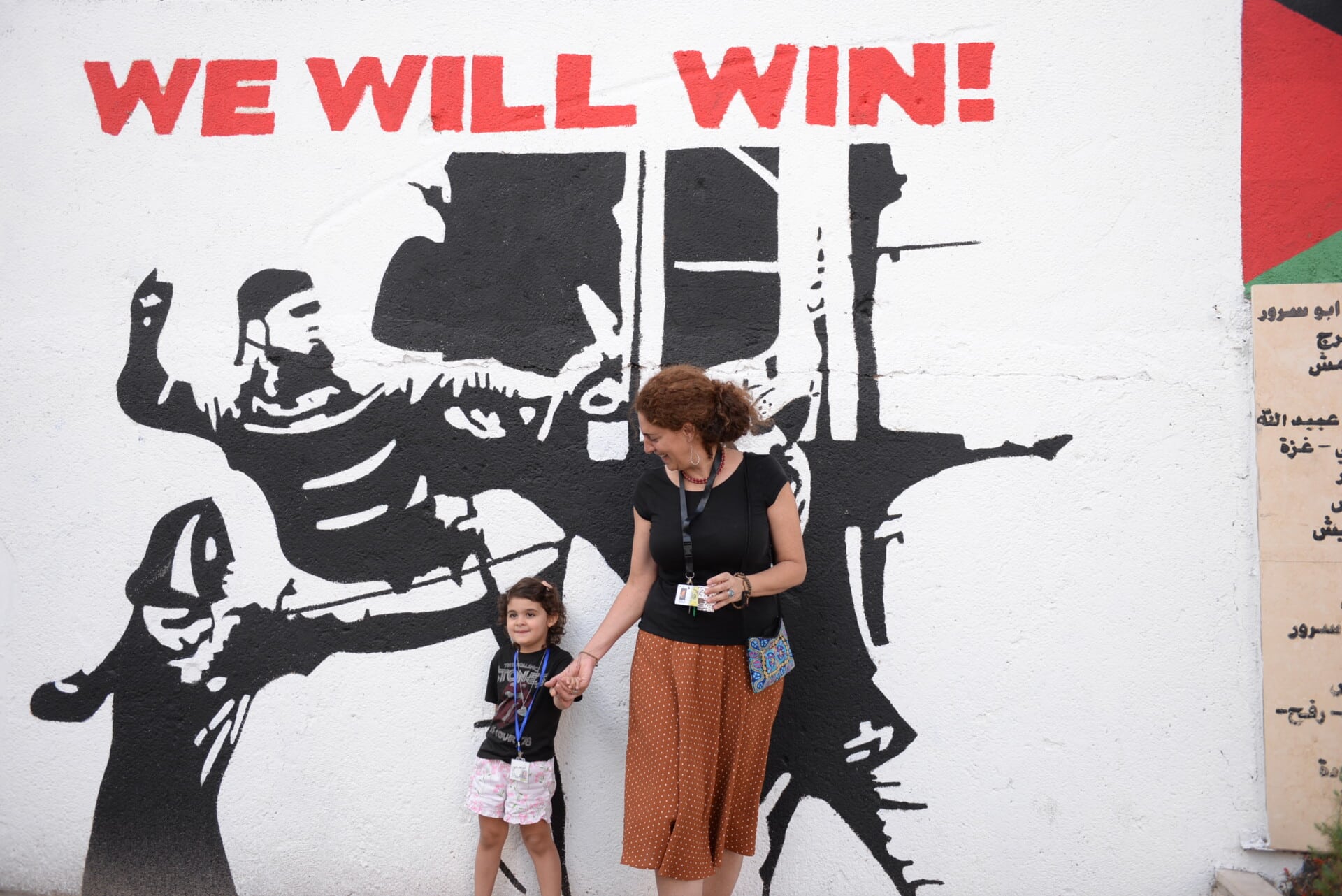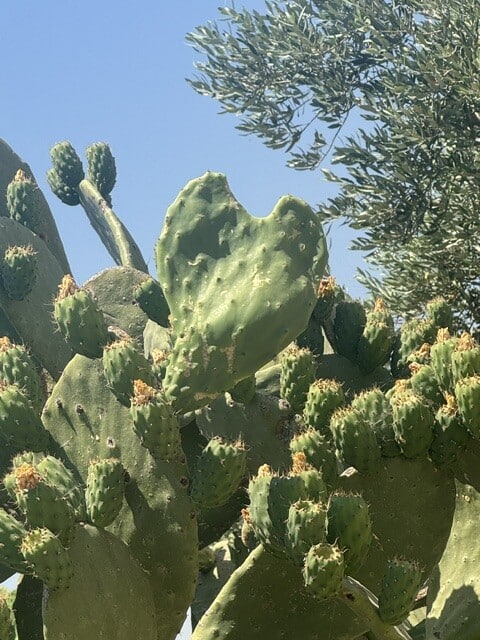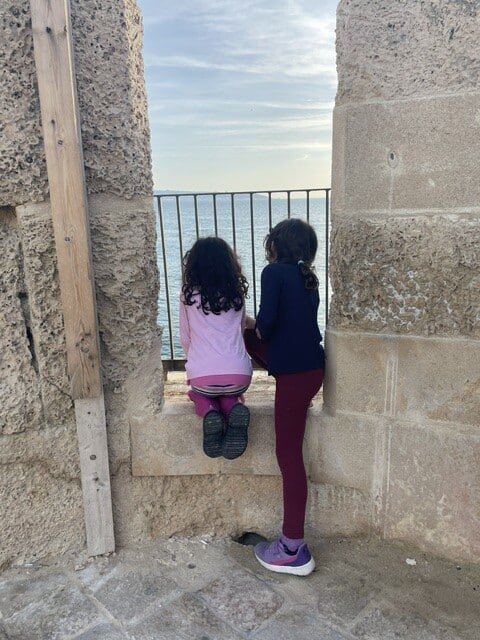Nadine Fattaleh: How are you doing?
Annemarie Jacir: It’s hard to answer with this genocide, with everything that has happened to our people for the past 15 months, for the last 10 years, for the last 75 years. Last night we found out that the ceasefire will go into effect on Sunday. What does that mean? It’s great, happy news that all this killing, destruction, and awful violence will be paused, stopped, hopefully forever. It’s so devastating to think about all of the lives that we have lost in the last year and a half. It’s also infuriating.
I’m sorry. It’s hard to give an answer, because I think we have all been changed forever.
NF: How did you decide to become a filmmaker?
AJ: I began filmmaking through observing a film editor when I lived in Texas. I used to watch her edit, and she showed me the ropes. I started playing with images at a very young age, probably around 15. I watched the classics, foreign films, docs, and indie films. Everything. I can’t say I was attracted to any genre in particular, but I was always drawn to character-driven stories. Then I took a screenwriting course. I come from a writing and literature background, so my initial interest in cinema was writing. Years later, I moved to LA and worked for a few years in the industry. I felt that I wasn’t learning too much about filmmaking or directing, though, so I decided to pursue graduate work and got a master’s degree in film. And that’s how it began.
NF: You made your first feature film, Salt of This Sea, in 2008. What was that experience like, and what happened after that?
AJ: I made a short film, Like Twenty Impossibles (2003), about a film crew attempting to cross Israeli checkpoints during the Second Intifada, and that became the first short Arab film to go to Cannes. That helped launch my career. It enabled me to meet people in order to make my first feature, Salt of This Sea, which was a long process. That film was about a Palestinian American who returns to Palestine, and it took about seven years to get that off the ground in terms of finding the financing because of the subject matter.
For my second feature, When I Saw You, about the onset of the Palestinian Revolution in Jordan in 1967, I was denied entry [by the Israelis] to where I was living in Palestine. So I moved to Jordan, because it was as close as I could be, and there it took me another six years to complete that film.
After When I Saw You, and following a lot of difficulties, I was able to return to Palestine, where I am now and have been living ever since. I made Wajib [a film about the experience of Palestinians living inside the Green Line] in 2017, and I’ve directed several shorts, experimental films, and TV episodes in between that.
NF: You mentioned how hard it is to fund your films. How has the funding changed over time?
AJ: It’s constantly changing, and every time you start from zero. The kind of cinema that I want to make—which is very personal, without limits or conditions—means that you have to be very stubborn and patient. That’s why I take years and years between my features. There is such a large gap of time because it is so difficult to find the support. The support is out there. You just have to find the community and the family that supports you and the work.
My recent film, the one that’s coming out, Palestine 36, has been a huge challenge, because it’s also a very large film. I’ve found amazing people, and a lot of them are the same people who have been supporting my work since Salt of This Sea. Many of them are brand new people, people who want to support independent voices, Palestinian voices, our stories. People who understand how we have been silenced and continue to be silenced.




